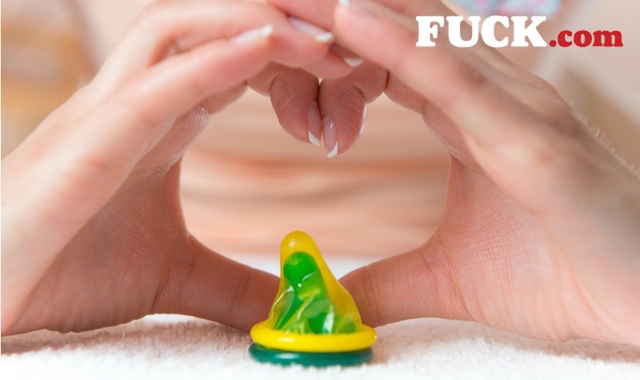Passion has its price they say... Is it your first time having an STI or being with someone who has one? There’s no need to hit the panic button! Popcorn.dating takes a closer look at some of the more common STD's; what the symptoms are, and what to do if you get one.
What is the best protection against sexually transmitted diseases?
Condoms! But remember you actually have to use them and use them correctly. Another thing you should be doing is to get tested regularly. If you do test positive for something, get it treated right away.
How do I recognise a sexually transmitted disease?
1. Syphilis
Infamous. It’s been around for fucking ever. Pirates had it, unfortunate 18th-century women had it, and even the Royals had it. Due to modern medicine syphilis has mostly lost its terror, but you should still keep your eyes open.
-
How can I get infected?
Infection is caused by bacteria spread over the skin and mucous membranes. That means all of the sexy stuff puts you at risk: fucking both vaginally and anally, oral sex and kissing. Condoms are only slightly effective against syphilis. -
What are the symptoms?
Symptoms are not always evident. You will notice swollen lymph nodes and reddened skin in scattered spots across the body. Sometimes cases can go undetected for decades which is particularly bad because it’s had time to infect the brain. -
Is there treatment for it?
Treatment is relatively easy with penicillin injections being the usual course of action. And of course, spread the word to any past sexual partners so they can also receive treatment. STI ping-pong is not a fun game.
2. Chlamydia
One of the lesser known STIs resulting in a bit of a paradox because it is one of the most frequently transmitted.
-
How can I get infected?
Again these invisible beasties are transmitted through all sexual contact including all forms of oral sex. -
What are the symptoms?
Usual symptoms include itching, mucous discharge, inflammation of the testicles or fallopian tubes, infertility and conjunctivitis. Sometimes the symptoms are dangerously similar to those of a urinary tract infection. Bare in mind that this is a sneaky one, and you might not have any symptoms at all. -
Is there treatment for it?
A doctor can easily test for chlamydia through a urine sample or a swab test. If the test comes back positive, treatment with antibiotics is the usual course of action. As of yet, there is no full-proof vaccination for it, so it’s still recommended to use condoms and other types of protection for oral sex.

3. Gonorrhea
The Tripper bacteria is one of the strongest living organisms on earth. It can carry 100,000 times its own weight for over seven hours.
-
How can I get infected?
Again, unprotected vaginal, anal, or oral sex. -
What are the symptoms?
Gonorrhoea will cause discharge from either the penis or vagina and cause a burning sensation when urinating. -
Is there treatment for it?
Since gonorrhoea is a bacteria, the treatment is, - wait for it - Antibiotics! Normally this is nothing to worry about too much. But considering the increased use of antibiotics these days, resistance to them is becoming more common, which may lead to incurable cases in the future.
4. Hepatitis B
There are over 200 million people on the planet living with Hepatitis B, but this is not because of an outbreak.
-
How can I get infected?
This little invisible beastie is super contagious. It can catch you from doing all the sexy things like kissing and fucking. But it can also catch you by doing some not so sexy things like blood transfusions, tattoos or from sharing shavers or needles. -
What are the symptoms?
Sometimes there aren’t any. Sufferers may feel tired or have no appetite. Sometimes there will be a slight fever. Skin and eye colour sometimes yellows. After treatment, the person returns to normal, but since this is a virus, it can stay in the body and remain dormant or turn chronic and cause liver damage. -
Is there treatment for it?
There is a vaccine to help prevent it, but treatment depends on how far along the virus is. It can be anything from medicine to a liver transplant.
5. HIV
HIV is a retrovirus that can develop into AIDS but doesn’t always. With more education about safer sex techniques and new medical treatments, eventually, infections have decreased.
-
How can I get infected?
There are a lot of myths about it, but we’d like to clear that up right now. Transmission happens through blood, sexual or perinatal transmission. -
What are the symptoms?
Early stages resemble those of the flu; fever, fatigue, night sweats, inflammation, joint pain, etc. Only a doctor can accurately test for the virus. -
Is there treatment for it?
This little beastie is quite tricky, so there is no cure yet. There are treatment plans to help prevent the virus from progressing into worse forms of itself. Medicine has reached a point where deaths are on the decline, so perhaps in the future, there will be a cure.
The point of all this isn’t to ruin all the fun, but to help educate you. So go forth and fuck intelligently and happily!



Join the conversation
You are posting as a guest. If you have an account, sign in now to post with your account.
Note: Your post will require moderator approval before it will be visible.
There are no comments to display.